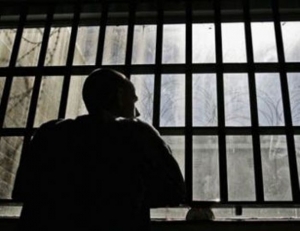
Five questions sent to the minister of corrections and legal assistance of Georgia Khatuna Kalmakhelidze on the forth of June, 2012 by “Young barristers” were left without answer, while in mandatory of new authorization due to the interests of high society the organization by the minister demanded answering to the main issues: if there was intended to review the cases of prisoners, ceasing institutional pursuit of barristers and review the cases of 113 detained barristers, whether you support the idea of large-scale amnesty in the country, introduce new priorities in new authorized mandatory and the main thing – how transparently the ministry planned to hold parliamentary elections of October 1, in jails, by accepting pre-election campaign and creating ability of carrying out election observation and monitoring in penitential system.
The Ministry has no position in connection with five important themes set by “Young barristers”. According to the letter received for the name of organization /26.07.2012/ all questions mentioned by us are ignored, that causes special worry. The ministry hasn’t introduced strategy how free elections should be carried out in jails to the society yet. According to the Elective Code the convicts accused in minor and less serious crimes will take place in the elections and according to data of 1st of February, 2012 there are 1500 prisoners having right to vote.
Silence in the system of corrections and legal assistance of Georgia about election transparency doesn’t mean elections in the system of corrections and legal assistance of Georgia.
The ministry of Khatuna Kalmakhelidze addresses advocates to search for priorities and reforms of the system on web-pages of the ministry, though none of the groups of society can’t discover official explanation or notice about basic issues that became the subject of our interest.
Affirmation the candidacy of old minister on the position of the minister of corrections and legal assistance of Georgia creates more questions and makes incredulity in society, even in case of minister’s new mandate there was the sense that the ministry of corrections and legal assistance of Georgia will return to legal order and such measures taken from human right standpoint will give chance of living quietly to convicts and their family members as well, but the government wouldn’t like to review its own strict criminal policy and “zero tolerance” is still left as priority direction.
Several noticeable facts for media
1. According to the research made by “International federation on human rights” (FIDH), Georgia has political prisoners. After meeting with family members of prisoners, jurists and non-governmental organizations and introduction with the reports of Public Defender, FIDH declared that “there really are human beings in Georgia who may be thought as “political prisoners” in accordance with definition of European Council about “political prisoners”.
2. According to the announcement of the department of normalization and statistics of the supreme court of Georgia, 113 advocates are in prisons since “Rose Revolution” till now. Not a single organization points that the responsibility of advocates’ is the result of institutional persecution of advocates body.
3. The successful mechanism of the system - councils of early conditional release of convicts periodically discuss the cases of the accused. The number of early released prisoners doesn’t exceed 250 persons.
4. According to the Election Code of Georgia, the persons with minor and less serious crimes will have the right to vote in the elections of 2012.





